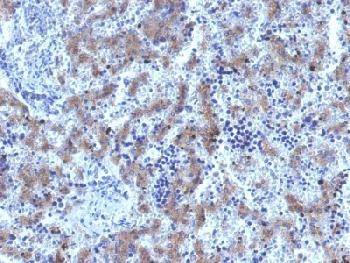Cookie preferences
This website uses cookies, which are necessary for the technical operation of the website and are always set. Other cookies, which increase the comfort when using this website, are used for direct advertising or to facilitate interaction with other websites and social networks, are only set with your consent.
Configuration
Technically required
These cookies are necessary for the basic functions of the shop.
"Allow all cookies" cookie
"Decline all cookies" cookie
CSRF token
Cookie preferences
Currency change
Customer-specific caching
FACT-Finder tracking
Individual prices
Selected shop
Session
Comfort functions
These cookies are used to make the shopping experience even more appealing, for example for the recognition of the visitor.
Note
Show the facebook fanpage in the right blod sidebar
Statistics & Tracking
Affiliate program
Conversion and usertracking via Google Tag Manager
Track device being used
| Item number | Size | Datasheet | Manual | SDS | Delivery time | Quantity | Price |
|---|---|---|---|---|---|---|---|
| ABE-12-1023-20 | 20 µg | - |
3 - 11 business days* |
373.00€
|
If you have any questions, please use our Contact Form.
You can also order by e-mail: info@biomol.com
Larger quantity required? Request bulk
You can also order by e-mail: info@biomol.com
Larger quantity required? Request bulk
Glypican-3 (GPC3) is a glycosylphospatidyl inositol-anchored membrane protein, which may also be... more
Product information "Anti-Glypican-3 (GPC3) (Hepatocellular Carcinoma Marker) (clone: GPC3/1534R) (recombinant rabbit mon"
Glypican-3 (GPC3) is a glycosylphospatidyl inositol-anchored membrane protein, which may also be found in a secreted form. Anti-GPC3 has been identified as a useful tumor marker for the diagnosis of hepatocellular carcinoma (HCC), hepatoblastoma, melanoma, testicular germ cell tumors, and Wilm s tumor. In patients with HCC, GPC3 is overexpressed in neoplastic liver tissue and elevated in serum, but is undetectable in normal liver, benign liver, and the serum of healthy donors. GPC3 expression is also found to be higher in HCC liver tissue than in cirrhotic liver or liver with focal lesions such as dysplastic nodules and areas of hepatic adenoma (HA) with malignant transformation. In the context of testicular germ cell tumors, GPC3 expression is up regulated in certain histologic subtypes, specifically yolk sac tumors and choriocarcinoma. A high level of GPC3 expression is also found in some types of embryonal tumors, such as Wilm s tumor and hepatoblastoma, with a low or undetectable expression in normal adjacent tissue. In patients with thyroid cancer, expression of GPC3 is dramatically enhanced in certain types of cancers: 100% in follicular carcinoma and 70% in papillary carcinoma. Expression of GPC3 in follicular carcinoma is significantly higher than that of follicular adenoma. In contrast, GPC3 is not expressed in anaplastic carcinoma. Protein function: Cell surface proteoglycan that bears heparan sulfate (PubMed:14610063). Negatively regulates the hedgehog signaling pathway when attached via the GPI-anchor to the cell surface by competing with the hedgehog receptor PTC1 for binding to hedgehog proteins. Binding to the hedgehog protein SHH triggers internalization of the complex by endocytosis and its subsequent lysosomal degradation. Positively regulates the canonical Wnt signaling pathway by binding to the Wnt receptor Frizzled and stimulating the binding of the Frizzled receptor to Wnt ligands (PubMed:16227623, PubMed:24496449). Positively regulates the non-canonical Wnt signaling pathway. Binds to CD81 which decreases the availability of free CD81 for binding to the transcriptional repressor HHEX, resulting in nuclear translocation of HHEX and transcriptional repression. Inhibits the dipeptidyl peptidase activity of DPP4 (PubMed:17549790). Plays a role in limb patterning and skeletal development by controlling the cellular response to BMP4. Modulates the effects of growth factors BMP2, BMP7 and FGF7 on renal branching morphogenesis. Required for coronary vascular development. Plays a role in regulating cell movements during gastrulation. [The UniProt Consortium]
| Keywords: | Anti-GPC3, Anti-OCI5, Recombinant Rabbit Monoclonal Antibody to Glypican-3 (GPC3) (Hepatocellular Carcinoma Marker)(Clone : GPC3/1534R) |
| Supplier: | Abeomics |
| Supplier-Nr: | 12-1023-20 |
Properties
| Application: | FC, IF, IHC |
| Antibody Type: | Monoclonal |
| Clone: | GPC3/1534R |
| Conjugate: | No |
| Host: | Rabbit |
| Species reactivity: | human, rat |
| Immunogen: | Recombinant human full-length GPC3 protein |
| Format: | Purified |
Database Information
| KEGG ID : | K08109 | Matching products |
| UniProt ID : | P51654 | Matching products |
| Gene ID | GeneID 2719 | Matching products |
Handling & Safety
| Storage: | +4°C |
| Shipping: | +4°C (International: +4°C) |
Caution
Our products are for laboratory research use only: Not for administration to humans!
Our products are for laboratory research use only: Not for administration to humans!
Information about the product reference will follow.
more
You will get a certificate here
Viewed







![Anti-GPC3 (DGSX, Glypican Proteoglycan 3, Glypican-3 [Precursor], Gpc3, GPC3_HUMAN, GTR2 2, GTR2-2, Anti-GPC3 (DGSX, Glypican Proteoglycan 3, Glypican-3 [Precursor], Gpc3, GPC3_HUMAN, GTR2 2, GTR2-2,](/custom/plugins/NetiThemeBiomol/Resources/Themes/Frontend/Biomol/frontend/_public/src/img/no-picture.jpg)
